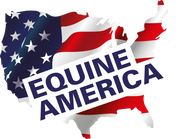Top Tips for Maintaining Healthy Summer Skin
1. Protect Against Biting Insects
Sweet itch is one of the most common and frustrating summer skin conditions, caused by an allergic reaction to the saliva of biting midges (Culicoides). Prevention is key.
Use fine mesh sweet itch rugs and fly masks to provide a physical barrier against insects, and consider stabling your horse during dawn and dusk, when midges are most active. Complement this with topical fly repellents and soothing sprays to help deter insects and reduce the urge to scratch.
For added support, consider feeding a nutritional supplement that contains ingredients like omega-3 fatty acids, MSM, and antioxidants, which can help support the skin from within and promote a healthy immune response.
2. Avoid Sunburn and Photosensitive Reactions
Horses with white markings, pink noses, or sensitive skin may suffer from sunburn during hot, sunny days. To prevent this, ensure your horse has access to shade, especially during peak sunlight hours. Apply an equine-safe sun cream or sunblock to vulnerable areas like the muzzle and around the eyes.
If your horse is on certain medications or grazes on specific plants, they may be at risk of photosensitisation — a condition where the skin reacts abnormally to sunlight. Always monitor for signs of redness, blistering, or peeling, and speak to your vet if you notice anything unusual.
3. Keep the Skin Clean, but Don’t Over-Wash
Regular grooming helps to keep the skin clean, free of sweat, dirt, and loose hair. It also allows you to check for early signs of irritation or insect bites.
While the occasional wash-down is helpful, over-bathing can strip the skin of natural oils. If you do bathe your horse, use a mild, skin-friendly shampoo designed specifically for equine use. Look for products that contain natural soothing ingredients such as aloe vera, tea tree, or chamomile to help calm irritated skin.
4. Feed the Skin from Within
Nutrition plays a vital role in skin health. Horses prone to summer skin issues may benefit from targeted skin and coat supplements that include ingredients such as:
-
Linseed oil – a rich source of omega-3 to help maintain skin integrity
-
MSM (Methylsulfonylmethane) – to support a normal inflammatory response
-
Zinc and biotin – to aid skin repair and hair regrowth
-
Antioxidants – to help combat oxidative stress caused by UV exposure and environmental allergens
These ingredients can be particularly helpful for horses that suffer with seasonal itching or patchy coats.
5. Monitor and Manage Allergies
Some horses react to environmental allergens such as grass, tree pollen, or mould spores, resulting in itchy, inflamed skin or hair loss. These reactions often worsen in the summer months.
Keep your horse’s living environment clean, dry, and as dust-free as possible. Regularly clean rugs, numnahs, and grooming tools, and avoid turnout in areas with high midge populations or long grass where allergens may be concentrated.
If your horse continues to struggle despite preventative care, speak to your vet or a qualified nutritionist about possible management strategies, including nutritional support or medical treatment.
Final Thoughts
Keeping your horse’s skin healthy during the summer months doesn’t have to be a challenge. With the right combination of protective gear, topical care, grooming, and nutritional support, most summer skin issues can be managed — or even avoided entirely.
At Equine America, we offer a range of skin-friendly supplements and topical solutions designed to support your horse’s skin, coat, and overall wellbeing.
Because healthy skin means a happy, comfortable horse — all summer long.
 Skip to content
Skip to content

